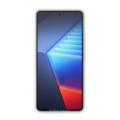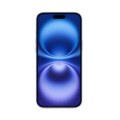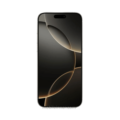- Home
- All Phones
- VIVO
- Vivo iQOO Z9
Vivo iQOO Z9
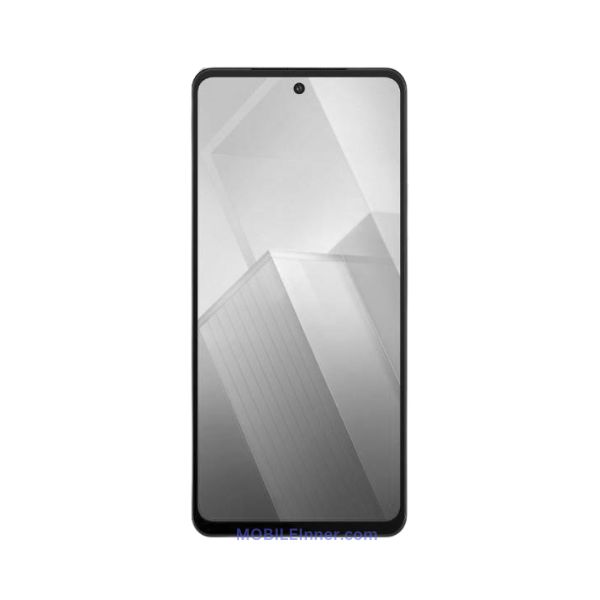

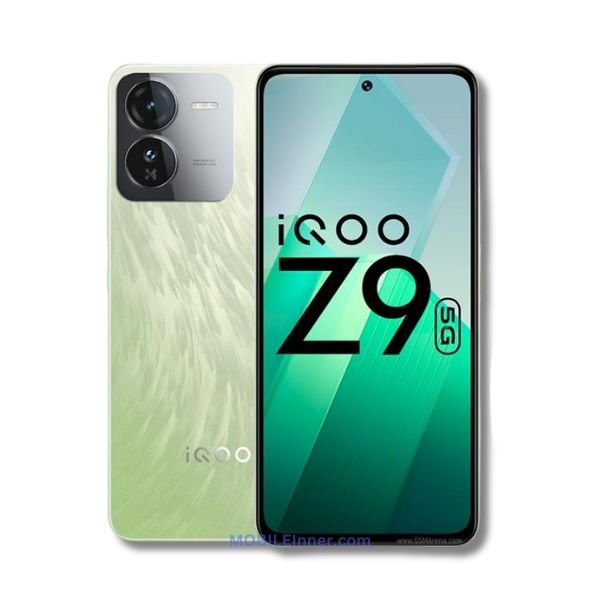
Full specification
General
| Device Type | Smart Phone |
| Released | 13, March 2024 |
Design
| Dimensions | 163.2 x 75.8 x 7.8 mm |
| Weight | 188 g |
| Build | Glass front, plastic back, plastic frame |
| IP Rating | IP54 |
| Colors | Brushed Green, Graphene Blue |
Display
| Display Type Display Technology => A number of display technologies and types used in mobile phones => TFT (Thin Film Transistor), IPS (In-Place Switching), OLED (Organic Light Emitting Diode), AMOLED (Active-Matrix Organic Light-Emitting Diode), Super AMOLED (an even advanced version of AMOLED), Resistive Touchscreen (Resistive touchscreens contain two layer of conductive material with a very small gap between them which acts as a resistance), Capacitive Touchsceen (Capacitive touchscreen technology consists of a layer of glass coated with a transparent conductor) | AMOLED, 120Hz |
| Size | 6.67 inches |
| Resolution | FHD+, 1080 x 2400 pixels |
| Pixel Density Pixel Density (PPI) is refers to the concentration of pixels on a particular display, measured in pixels per inch (ppi). Pixel density is calculated by dividing the diagonal pixel resolution of a display by its diagonal size, higher pixel density better display quality. | 395 ppi |
| Protection Display Protection => Gorilla Glass is a special alkali-aluminosilicate glass shield with exceptional damage resistance that helps protect mobile displays from scratches, drops, and bumps of everyday use, It is always better to go for a smartphone with Gorilla Glass for that added protection and peace of mind. | Dragontrail Star 2 Plus |
| Features | 86.8% screen-to-body ratio, Always-On display, 120Hz, 20:9 ratio, Hole-punch Notch, HDR10, Max brightness HBM - 800 nits, Peak brightness - 1800 |
Software
| OS OS => Every computer system run on a base software called Operating System (OS). Operating System controls all basic operations of the computer (such as smartphone, PDAs, tablet computers and other handheld devices). The Operating System allows the user to install and run third party applications (apps), apps are used to add new functionality to the device. | Android 14 |
| UI UI or user interface of a device is the look and feel of the on-screen menu system. How it works, its color scheme, how it responds to button presses, all of these things are part of the user interface. | Funtouch 14 |
Hardware
| Chipset Chipset is a group of integrated circuits designed to perform one or a more dedicated functions, often with real time computing constraints, Popular smartphones are equipped with more advanced embedded chipsets that can do many different tasks depending on their programming. | Mediatek Dimensity 7200 (4 nm) |
| CPU CPU (Central Processing Unit) mostly known as processors, CPU processes instructions in order to carry out certain functions that make your device operate properly. Processors are often described as the brain of computers, smartphones and tablets, Smartphones and tablets rely on processors to carry out their every task, Processors are an incredibly important factor in selecting any type of computing device, including your smartphone. |
8-core (2x Cortex-A715 • 2.8 GHz + 6x Cortex-A510 • 2.0 GHz) |
| GPU GPU (Graphics Processing Unit) is a single-chip processor designed to rapidly manipulate and alter memory to accelerate the creation of images in a frame buffer intended for output to a display, This includes things such as lighting effects, object transformations, and 3D motion. | Mali-G610 MC4 |
Memory
| Card Slot Memory Card Slot is a special slot for inserting a memory card. Memory cards allow you to expand the phone's built-in memory, A memory card (sometimes called a flash memory card or a storage card) is a small storage medium used to store data such as text, pictures, audio, and video, for use on small, portable or remote computing devices such as mobile phones, mp3 players, digital cameras. | microSDXC, shared SIM slot |
| RAM RAM (Random Access Memory) is a type of computer memory that can be accessed randomly, any byte of memory can be accessed without touching the preceding bytes that allows information to be stored and accessed quickly from random locations. RAM is the most common type of memory found in computer systems, smartphones, tablets and other electronic devices. | 8 GB |
| RAM Type | LPDDR4X |
| ROM Internal Storage is a data storage space (flash memory) mostly used in smartphones, tablets and other electronic devices where operating system, apps, music, photos, videos, files and other user data Is stored. | 128GB, 256GB |
| Type Design Type called form factor refers to a mobile phone's size, shape, and style as well as the layout and position of major components of phone. There are three major form factors seen in mobile phones => bar phones, folding phones and sliding phones. | UFS 2.2 |
Camera
| Primary Camera is able to capture photographs and usually videos, The most important characteristics of a camera are the resolution (measured in megapixels), lens focus type (fixed or automatic), higher megapixel cameras are known to capture higher quality photos, but not always a good measurement of the photos quality. |
Dual Camera 50 MP, f/1.8, 26mm (wide), PDAF, OIS (Sensor - Sony IMX882, Sensor size - 1/1.95, Pixel size - 0.80µm) 2 MP, f/2.4, (depth) (Sensor - , Sensor size - , Pixel size - ) |
| Video |
4K@30fps, 1080p@30fps |
| Features | LED flash, panorama, HDR |
| Selfie |
16 MP, f/2.0, (wide) (Sensor - , Sensor size - 1/3.0, Pixel size - 1.0µm) |
| Video | 1080p@30fps |
Media
| FM Radio | No |
| Loudspeaker | Yes, Stereo speakers |
| 3.5mm Jack | No |
| Alert Types | Vibration & Ringtone |
Connectivity
| Bluetooth Bluetooth is a wireless communications technology for exchanging data between mobile phones, headsets, computers and other network devices over short distances without wires, Bluetooth technology was primarily designed to support simple wireless networking of personal consumer devices. | 5.3, A2DP, LE |
| Wi-fi Wi-Fi is a popular wireless networking technology using radio waves to provide high-speed network connections that allows devices to communicate without cords or cables, Wi-Fi is increasingly becoming the preferred mode of internet connectivity all over the world. | Wi-Fi Direct, Wi-Fi 802.11 a/b/g/n/ac/6, Dual-band |
| Wi-fi Hotspot | |
| USB | USB Type-C 2.0 |
| GPS GPS The Global Positioning System is a satellite-based radio navigation system, GPS permits users to determine their position, velocity and the time 24 hours a day, in all weather, anywhere in the world, In order to locate your position, your device or GPS receiver must have a clear view of the sky. | Yes- GPS, GALILEO, GLONASS, QZSS, BDS |
| NFC NFC (Near field communication) is a set of standards for smartphones and similar devices to establish peer-to-peer radio communications with each other by touching them together or bringing them into proximity, usually no more than a few inches. | |
| Infrared Infrared connectivity is an old wireless technology used to connect two electronic devices. It uses a beam of infrared light to transmit information and so requires direct line of sight and operates only at close range. |
Features
| Sensors Sensors are electronic components that detects and responds to some type of input from the physical environment. The specific input could be light, heat, motion, moisture, pressure and location, The output is generally a signal that is converted to use in computing systems, a location sensor, such as a GPS receiver is able to detect current location of your electronic device. | Fingerprint (under display, optical), accelerometer, gyro, proximity, compass |
Network
| Technology | GSM / HSPA / LTE / 5G |
| 2G Network | GSM 850 / 900 / 1800 / 1900 CDMA 800 |
| 3G Network | HSDPA 850 / 900 / 2100 |
| 4G Network | B1, 3, 5, 8, 28, 38, 40, 41 |
| 5G Network | n1, 3, 5, 8, 28, 40, 77, 78 SA/NSA |
| SIM SIM (Subscriber Identity Module) is a small card that contains mobile network subscriber's account information. This allows the phone using the card to attach to a mobile network. The SIM card is most commonly associated with GSM and UMTS mobile networks. Moving a SIM card from one phone to another allows a subscriber to switch mobile phones without having to contact their mobile network carrier. SIM cards can also be used by a phone to store limited amounts of data, such as phone numbers and text messages. | Nano SIM |
| Dual SIM | Yes - Dual stand-by |
| Speed | HSPA 42.2/5.76 Mbps, LTE-A, 5G |
Battery
| Battery Type Battery Type => Cell phones run on various kinds of batteries depending on the manufacturer, phone size or shape and features. There are basically four types of cell phone batteries => Lithium Polymer, Lithium Ion, Nickel Metal Hydride and Nickel Cadmium. | Li-Ion (Lithium Ion) |
| Capacity Battery Capacity is a measure (typically in Amp-hr) of the charge stored by the battery, and is determined by the mass of active material contained in the battery. The battery capacity represents the maximum amount of energy that can be extracted from the battery under certain conditions. | 5000 mAh |
| Charging | 44W wired, Fast charging |
| Wireless Wireless Charging (Inductive Charging) uses an electromagnetic field to transfer energy between two objects. This is usually done with a charging station. Energy is sent through an inductive coupling to an electrical device, which can then use that energy to charge batteries or run the device. | No |
| Placement | Non removable |
| Standby Standby Time is the total amount of time that you can leave your is fully charged, turned on and ready to send and receive calls or data transmissions before completely discharging the battery. | NA |
Vivo iQOO Z9 Overview
Vivo’s sub-brand, iQOO, has continued to impress with the release of the iQOO Z9. This mid-range smartphone achieves an excellent balance of powerful performance, a smooth display, a capable camera system, and a long battery life, all at an affordable price. Let’s look at what the iQOO Z9 offers budget-conscious gamers, social media enthusiasts, and everyday users.
A Display Built for Speed and Entertainment
The iQOO Z9 has a large 6.67-inch AMOLED display with a super smooth 120Hz refresh rate. The results are buttery-smooth visuals, whether you’re navigating menus, scrolling through social media, or dominating opponents in fast-paced games. The FHD+ resolution provides sharp visuals and exceptional clarity for everyday tasks and multimedia consumption. With a maximum brightness of 1800 nits, the display offers excellent readability even in bright outdoor conditions.
Powering Through Everyday Tasks and Games
The iQOO Z9 is powered by the MediaTek Dimensity 7200 processor, built with 4nm technology. It translates to improved performance on everyday tasks such as social media, messaging, and web browsing. Gamers will appreciate the ability to run even the most graphically demanding games without lag or stuttering. The phone has 8GB of LPDDR4X RAM and additional virtual RAM expansion capabilities for smooth multitasking. Storage options include 128GB and 256GB, giving you plenty of room to store your apps, games, photos, and videos.
Capture Life’s Moments with a Capable Camera System
The iQOO Z9 features a dual-camera system on the back. The primary sensor is a 50-megapixel Sony IMX882 with optical image stabilization. This combination allows you to take crisp, detailed photos in low-light conditions. While the secondary 2MP depth sensor adds a touch of artistic blur to portrait shots, some users may require an ultrawide sensor for capturing large landscapes. The phone can record videos at 4K resolution and 30fps, allowing you to capture life’s precious moments in high quality.
All-Day Battery Life and Speedy Charging
The iQOO Z9 has a sizable 5000mAh battery that promises to last a full day on a single charge. Whether you’re a casual or power user, the battery keeps you from having to search for a charger. When it’s time to recharge, the phone supports 44W fast charging, so you can quickly top up your battery and get back on track.
A Feature-Packed Experience with Funtouch OS 14
The iQOO Z9 runs Android 14 and Funtouch OS 14. While Funtouch OS extends customization options beyond stock Android, some users prefer a more minimalist experience. However, the software provides all the functionality and features you would expect from a modern smartphone, including access to the most recent Google Play Store apps and services.
iQOO Z9 Pros and Cons
User Reviews
-

Good smartphone
This phone offer good spec in this budget range
Disclaimer Note
We cannot guarantee that the information on this page is entirely 100% accurate.

